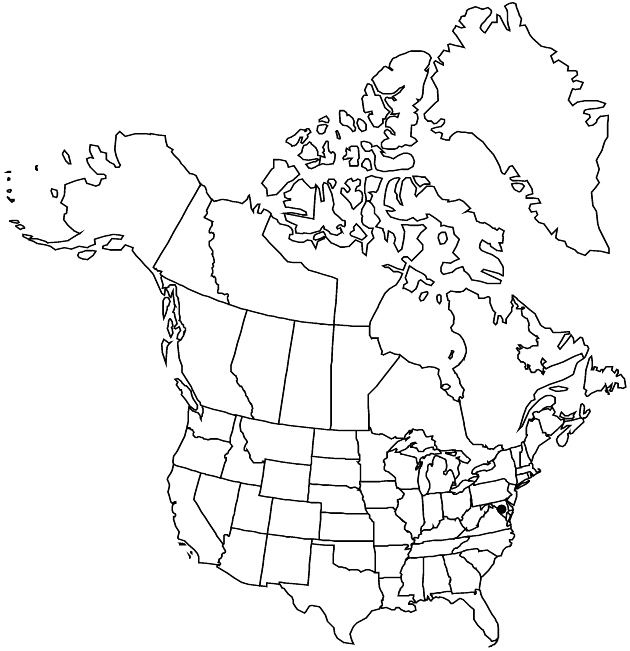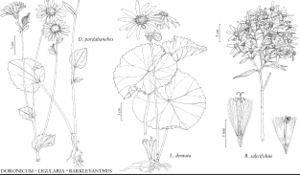Difference between revisions of "Ligularia dentata"
J. Jap. Bot. 15: 318. 1939.
IntroducedIllustrated
Basionym: Erythrochaete dentata A. Gray Mem. Amer. Acad. Arts, n. s. 6: 395. 1858
Synonyms: Ligularia clivorum Maximowicz Senecio clivorum (Maximowicz) Maximowicz
Treatment appears in FNA Volume 20. Treatment on page 614.
FNA>Volume Importer |
imported>Volume Importer |
||
| (2 intermediate revisions by 2 users not shown) | |||
| Line 6: | Line 6: | ||
|place=15: 318. 1939 | |place=15: 318. 1939 | ||
|year=1939 | |year=1939 | ||
| + | }} | ||
| + | |special_status={{Treatment/ID/Special_status | ||
| + | |code=I | ||
| + | |label=Introduced | ||
| + | }}{{Treatment/ID/Special_status | ||
| + | |code=F | ||
| + | |label=Illustrated | ||
}} | }} | ||
|basionyms={{Treatment/ID/Basionym | |basionyms={{Treatment/ID/Basionym | ||
| Line 37: | Line 44: | ||
|elevation=10–50+ m | |elevation=10–50+ m | ||
|distribution=Md.;Asia (China;Japan). | |distribution=Md.;Asia (China;Japan). | ||
| + | |introduced=true | ||
|discussion=<p><i>Ligularia dentata</i> is commonly cultivated in eastern Canada and the United States; it sometimes persists (as in Maryland).</p> | |discussion=<p><i>Ligularia dentata</i> is commonly cultivated in eastern Canada and the United States; it sometimes persists (as in Maryland).</p> | ||
|tables= | |tables= | ||
| Line 60: | Line 68: | ||
|publication title=J. Jap. Bot. | |publication title=J. Jap. Bot. | ||
|publication year=1939 | |publication year=1939 | ||
| − | |special status= | + | |special status=Introduced;Illustrated |
| − | |source xml=https:// | + | |source xml=https://bitbucket.org/aafc-mbb/fna-data-curation/src/2e0870ddd59836b60bcf96646a41e87ea5a5943a/coarse_grained_fna_xml/V19-20-21/V20_1377.xml |
|tribe=Asteraceae tribe Senecioneae | |tribe=Asteraceae tribe Senecioneae | ||
|genus=Ligularia | |genus=Ligularia | ||
Latest revision as of 20:00, 5 November 2020
Plants often purplish-tinged, glabrous or distally unevenly hairy; rootstocks stout, fibrous-rooted. Leaves: basal blades 20–45 × 20–40 cm, bases deeply cordate. Peduncles 2–9 cm. Involucres 9–12(–20) × 16–28 mm. Phyllaries greenish-tipped. Ray corolla laminae 20–35(–50) mm. Cypselae 8–10 mm; pappi 10–12 mm. 2n = 60.
Phenology: Flowering summer.
Habitat: Disturbed sites, abandoned plantings
Elevation: 10–50+ m
Distribution

Introduced; Md., Asia (China, Japan).
Discussion
Ligularia dentata is commonly cultivated in eastern Canada and the United States; it sometimes persists (as in Maryland).
Selected References
None.
Lower Taxa
None.
